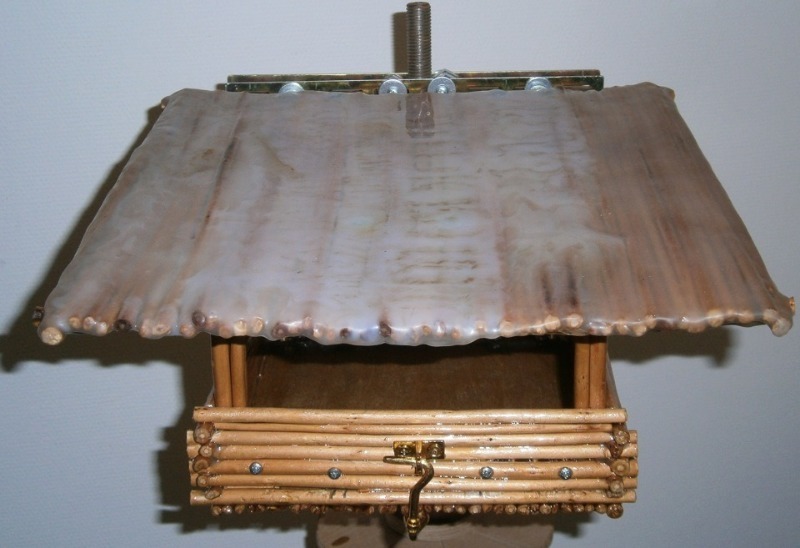Contents:
- 10th place: Whale-Feces Researcher
- 9th place: Forensic Entomologist
- 8th place: Olympic Drug Tester
- 7th place: Experimental in experiments(Gravity Research Subject)
- 6th place: Microsoft Security Grant
- 5th place: Coursework Carcass Preparer
- 4th place: Garbage( English garbage -Garbage)( Garbologist)
- 3rd place: Elephant Vasectomist Elephant Vasectomist
- 2 place: Oceanographer
- 1 st place: Hazmat Diver
10th place: Whale-Feces Researcher
They collect whale feces, and then dig into them in search of answers.
"Attention, the brown spot!" Is not the cry that most seamen really want to hear, but for Rosamund Roland, a senior scientist at the New Britain Aquarium in Boston, it's a siren song. Roland, along with his own assistants, furrows the Bay of Fundy off the coast of New Scotia, Canada, in search of feces of endangered North Atlantic smooth whales. Investigating feces, it is possible to find out much about whales, including, to determine the level of hormones and biotoxins, to conduct genetic studies. When examining feces it is even possible to distinguish individual whales. Roland became a pioneer in the study of whale feces in 1999. By 2003, Roland, diluted with a small amount of specimen collected, began to search for cetacean secretions of sniffing dogs that detect feces from a distance of 1 verst. In the past few years, other scientists have begun to apply the methods of Roland.
9th place: Forensic Entomologist
Reveals murders by examining the larvae.
According to Neil Haskell, one of the leading US forensic entomologists, he was once called by a familiar policeman who knew that he was analyzing entomology at the college and said: "Hey, Neal, we have a body with insects on it in the morgue. Do not want to see? "The corpse was the guy Haskell knew, and he had larvae in his teeth. Then he found the larvae in his eyes and thought: "That's what I want to create. That's cool".
To date, Haskell has conducted a study of about 700 decomposed corpses, gave testimony in approximately 100 lawsuits. He is also one of the co-authors of the monograph on entomology for US law enforcement agencies and teaches entomology in one of the colleges. His activity, as well as the activities of about 20 other forensic entomologists in the country, is the identification of the stage from the time of human death to the time of detection of the corpse, by studying the presence of testicles, larvae, pupae and mature meat flies, and some other insects in corpses.
At times, forensic entomologists have to take a more active part in research. So to investigate a murder in Cleveland Haskell had to wrap up in plastic 17 pigs carcasses to determine at what speed flies can colonize corpses in bags.
8th place: A scientist for the existence of doping during the Olympic Games( Olympic Drug Tester)
If your activity is to test the world's leading athletes for the existence of doping, then there is no method to be in the winning cases.
Every 2 years, the world's leading athletes light a torch, get together and cheat like crazy. During the Olympic Games in Beijing in 2008, hundreds of officers will follow how athletes write in cups about 4000 times during 21 days. And scientists will be in a no-win situation. If they reveal a deception, then they will provoke the wrath of the whole nation. If they do not reveal a deceiver, whose test later turns out to be positive, they will be vilified in the press for incompetence. And even likely their complex tests will not reveal all the crooks, as in the race to provide better drugs, doping constantly wins.
7th place: Subject in experiments on Gravity Research Subject
They are tied in order for astronauts to take off.
Everyone knows that a long stay in weightlessness negatively affects the health of astronauts, namely, atrophy of muscles, weakened bone tissue. Scientists are supposed to overcome these symptoms, developing a special therapy for long flights. However, the only way to achieve the effects caused by weightlessness is to make wishing to lie motionless - for weeks. For example, in the NASA Johnson Space Center in Houston, 15 people organized 21 days tethered in bed. In doing so, they were tilted head down at an angle of 6 degrees, which mimicked the limited use of musculature and increased blood flow to the head, the effects that are observed in space. By the way, for participation in this experiment, volunteers earned $ 6,000.Such studies are now being conducted at the University of Texas in Galveston.
6th place: Computer security specialist of Microsoft( Microsoft Security Grunt)
As if you wear a huge poster "Hack me".
Employees of the Microsoft Security Response Center for 365 days in the city are engaged in eliminating the quirks of Windows, Internet Explorer, Office and other products of the company. This is tiring activity. Each product has multiple versions in different languages and each needs its own patches( for example, only Internet Explorer 300 has different configurations).In addition, for most of the hackers to crack the product "Microsoft", the same thing that eradicate the death star.
5th place: Specialist preparing creature samples( Coursework Carcass Preparer)
They kill, canned and placed in the bottles of animals, which are then cut off by the students.
Do not you forget the I smell of formaldehyde when the teacher brought the toad to a biology lesson? And now imagine that you inhale these pairs for 8 hours.per day, 5 days a week. These are the conditions in which people prepare biological samples, namely, they poison, store and pack worms, toads, cats, pigeons, sharks and even cockroaches, which are then used in biology classes in high schools and colleges.
4th place: Garbog( Garbage) Garbologist
Imagine Indiana Jones - at the dump.
Archaeologists usually dig in the ancient garbage. However, William Ratier from Stanford University.will not wait. Since 1973, the self-named "harbologist" has sifted at least 250,000 pounds of garbage, analyzing modern consumption patterns and how high-speed garbage is decomposed. As a rule, he digs from 15 to 20 "wells" with a depth of 90 feet in a garbage dump and pulls 20 to 30 tons of garbage from each well, which he carefully catalogs with his own students. In particular, he found that diapers make up 2% of debris, and paper up to 45%, which is the correlation between m / c cat owners( cat litter fillers) and readers of the newspaper "National Enquirer"( discarded newspapers).
3rd place: Elephant Vasectomist
When your patient is the largest land animal on Earth, sterilization becomes a huge job.
What is it - 1 foot, hidden behind 2 inches of skin, four inches of fat and 10 inches of muscle? That's right: elephant egg. This means that the final invention of veterinarian Mark Setter - a four-foot fiber optic laparoscope( medical endoscope for studying the peritoneal cavity) with a video camera - must be an extremely reliable device for supporting the sterilization of a sexually excited male elephant. Stetter, the veterinarian of the Disney's Animal Kingdom in Florida, made this device to control the elephant population in African natural parks where they multiply and eat more than they should. Until now, the 1st 4th elephant, subjected to a vasectomy, had undergone the h / z procedure without problems( except perhaps probably hurt pride).
2 place: Oceanographer
Bad news every day.
Researchers expect that excessive fishing for fish will destroy fishing by 2048, and that coral reefs will become garbage for decades. About 200 "dead" zones with insufficient oxygen content rush the coast. In 2004, there were 149 such zones. At that time, a plastic whirlpool the size of Texas suffocates the North Pacific, destroying fish and birds;construction destroys coastal natural areas, and key marine species on the verge of extinction. And to crown it all, if global warming continues as predicted by researchers, the amount of carbon dioxide in the ocean will increase the acidity of water to a level that only jellyfish will not die there. Oceanologists have a lot of articles - if they can digest all the bad news.
1 st place: Diver in hazardous waste( Hazmat Diver)
They swim in sewage. This is enough.
These Jacobs of Sewer Sutures float in cloud of waste, inside nuclear reactors and in toxic spills on the coast and in other waterways of America. If the Environmental Protection Agency detects pollution, it enters into an agreement with a team of industrial divers for cleaning. Activities include the use of giant vacuum installations for cleaning the bottom of lakes, raising leaking barrels to the surface, diving in oil spills or sewerage to clean the obstructions. According to the recollections of Stephen Barsky, author of the monograph "Diving in Highly Hazardous Environments," bibles for divers in hazardous waste, the worst was diving on a pig farm. The guy drove his own truck into a sump for waste and drowned. This sump was not only full of pig's urine and feces, but also full of used syringes, with which pigs were injected with antibiotics and hormones. Someone had to extract the body, and this activity fell on the shoulders of commercial divers into hazardous waste.
 The magazine "Popular Sainz" published its own annual rating of the worst occupations in the field of science. As stated in the preamble to this rating, "we pay tribute to those men and women who do what no salary can reward."
The magazine "Popular Sainz" published its own annual rating of the worst occupations in the field of science. As stated in the preamble to this rating, "we pay tribute to those men and women who do what no salary can reward."



